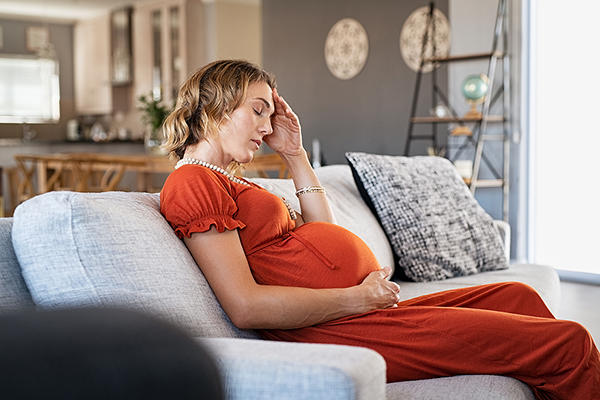Awaiting the arrival of your baby is an exciting and joyful time, but it is also one filled with uncertainty. The COVID-19 pandemic can certainly factor into the fear of the unknown, but staying aware and prepared can help.
What to Expect
With pregnancy comes benefits, but also unwelcome symptoms, including moodiness and morning sickness. If you add COVID-19 into the mix, you are also at risk of severe illness related to the virus. Pregnant women are more likely to experience adverse outcomes that may make it necessary for you to be admitted to the intensive care unit and undergo mechanical ventilation. COVID-19 might also increase the risk of pregnancy complications, including preterm delivery. If you notice any symptoms indicative of COVID-19, including cough, fever, loss of smell or shortness of breath, contact your health care provider about what to do next. In some instances, treating your symptoms at home is the best route to take, but professional medical intervention may also be necessary.
Best Practices to Protect Yourself
To decrease your risk of contracting COVD-19:
- Practice social distancing. Avoid crowded places. When you are in larger groups or in public, try to stay six feet away from others.
- Wash hands regularly. This is especially important before eating and after coming into contact with commonly touched surfaces, such as doorknobs and gas pumps. When you wash your hands, lather the front and back of the hands thoroughly with soap and warm water, gently scrubbing for at least 20 seconds. Rinse thoroughly and pat hands dry with a clean cloth or paper towel.
- Wear a mask. Covering your nose and mouth can help safeguard you from droplets containing the virus.
What About the Vaccine?
Because the COVID-19 vaccine is so new, limited data is available about long-term effects on pregnant women and their babies. However, according to data from animal-model studies, the vaccines do not present safety concerns specific to pregnancy.
If you are pregnant and considering the COVID-19 vaccine, speak with your health care provider about the costs and benefits of this option. If you decide not to receive the vaccine, be especially mindful about healthy prevention habits.





